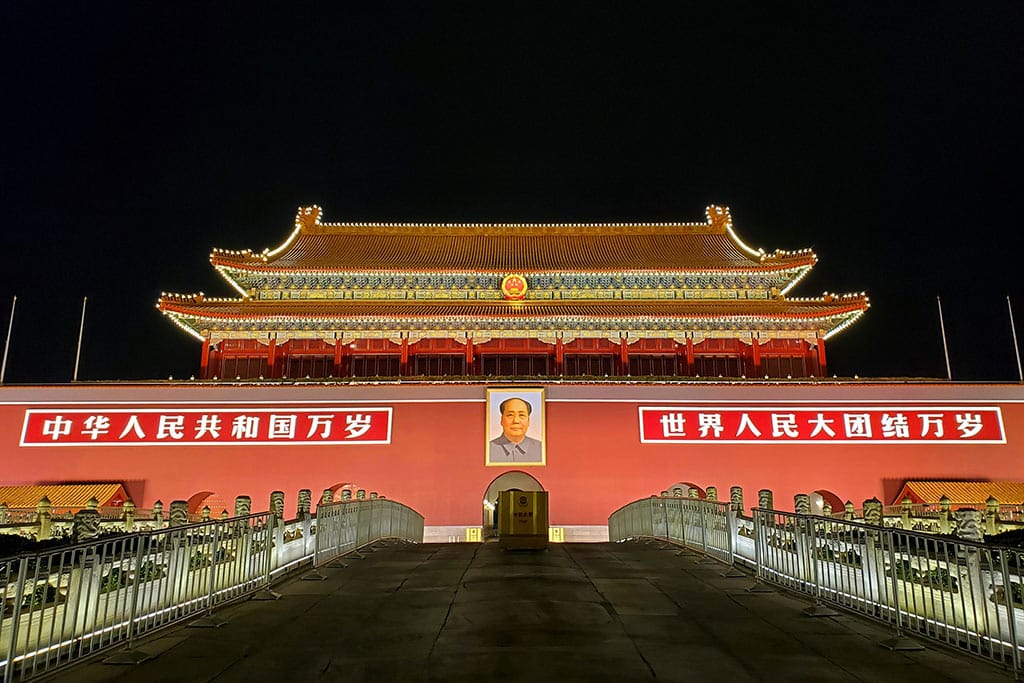
The US is embarking upon a strategy of definition against China, based on a broad domestic consensus predating Biden, but that now draws heavily on domestic policy. Beyond this, however, China is the only country with the potential for competing at all levels of power with the US and challenging its hegemony. Biden, on his recent ‘Western normalisation’ tour following Trump’s upsets (the G7, NATO, the EU-US and with Russia, summits where Beijing was conspicuous by its absence) he has mustered greater European support for his anti-China outlook, with the latter being cast as a ‘competitor’ and ‘systemic rival’ but also ‘partner’. In fact, despite the rhetoric, US investment capital has continued pouring into China, although it remains to be seen whether there will be a degree of decoupling between the US and China in the technology sphere. But now that the Western summits are over, and the summit on liberal democracies is still to come, one question is whether China truly poses a challenge to such democracies. Public opinion thinks not.
The economist and analyst Dani Rodrik put his finger on the dilemma by asking ‘can democracies remain true to their values while engaging in trade and investment with China?’. To address this question he suggested ‘we must recognise two facts. First, it is impossible to envisage a significant decoupling of the Chinese economy and the economies of the West that does not induce economic catastrophe. Second, there is little that Western countries can do, individually or collectively, to reshape China’s state-driven economic model or repressive human- and labour-rights regime’.
There is an entire current in Western thinking that may be deemed ‘the naivety of Bill Clinton’. When China joined the World Trade Organisation (WTO), at the beginning of this century, the then US President declared: ‘By joining the WTO, China is not simply agreeing to import more of our products, it is agreeing to import one of democracy’s most cherished values: economic freedom. When individuals have the power… to realise their dreams, they will demand a greater say’. This extremely widespread assumption was largely due to acute ignorance of China, which is not South Korea, or Japan or Taiwan (or Spain). As Mario Esteban argues, ‘both Spain and the EU need to have more specialised knowledge of China’, because there is too much dependence on analyses originating from the US.
It is possible to cite numerous US sources with an outlook that is more in tune with reality, however. Rana Mitter and Elsbeth Johnson, in the highly reputable Harvard Business Review, rightly identify three myths where the West gets China wrong: (1) economics and democracy are two sides of the same coin; (2) authoritarian political systems cannot be legitimate; and (3) the Chinese live, work and invest like Westerners.
The highly reliable 2018 World Values Survey found that 95% of Chinese citizens had considerable or plenty of confidence in the central government, one of the highest rates in the world, but not in their local governments (69%). (Regarding the reliability of these surveys, an essential element for the regime, see Wenfang Tang’s book). This does not equate to support for the Chinese system outside China, or for the US system. The Europeans –leaders and citizens– are delighted to see Biden instead of Trump in the White House, as a recent Pew Center poll reveals, but it also suggests that Europeans, and Westerners in general, view US democracy as damaged, no longer serving as a model. This is why, as has already been argued in this blog, Biden’s forthcoming summit of democracies, planned for an unspecified date, should start at home before adopting an anti-Chinese stance.
Unlike the former Soviet Union, China does not seek to export its model and, with the Chinese Communist Party preparing to celebrate 100 years of existence, it lacks an equivalent of the Komintern. It possesses new instruments for defending, without naivety, its regime, its wellbeing, its interests and its image, which includes both its soft power, in Europe and elsewhere, and its hard power. Disinformation and cyber-spying fall somewhere in between. China under Xi Jinping has become more assertive (which is normal, given its re-emergence) and authoritarian (not so normal, although new technology has made it feasible). It is true that China does not make its economic deals with other countries dependent on political values, has a highly geopolitical outlook –this is a great historical power game– and can export the technology, which in the new era of digitalisation and artificial intelligence favours techno-authoritarian regimes. But the coup leaders in Myanmar have relied on technology of this sort supplied not only by China but also by highly liberal Western countries, such as Sweden and Norway, as well as Israel. There is a similar ratio of facial recognition cameras on the streets of London per inhabitant compared with Beijing, a phenomenon that is becoming global (and that Brussels wants to curb). Innocence is in short supply in this world.
With Biden back in Washington, European voices became more nuanced. The US-EU Trade and Technology Council may be a positive factor in setting a course in norms and standards –a realm in which China is understandably becoming more and more active and to be taken into account– and defusing potential transatlantic, as well as East-West, conflicts. Summit communiques are one thing; coming to an agreement on what actually to do is quite another. Despite NATO’s warning that China’s military ambitions pose a threat to the world order –although it will be necessary to integrate the new superpower more into this order–, the NATO secretary general Jens Stoltenberg, who inserted the issue into the organisation’s agenda, declared that China ‘is not an enemy’, nor was a new Cold War being sought. Perhaps one of the most significant opinions, because he may become the new German Chancellor following Angela Merkel, is that of her successor as the Christian Democrat candidate, Armin Laschet, for whom ‘the question is –if we’re talking about “restraining” China, will that lead to a new conflict? Do we need a new adversary? And there the European response was cautious, because, yes, China is a competitor and a systemic rival, it has a different model of society, but it’s also a partner, particularly in things like fighting climate change’.
None of this detracts from the need to defend human rights and democracy as far as possible. This, of course, involves defending them within. But Europe, and by extension the West, has lost the ability to export them, despite the EU’s normative role. Another survey, this time from the Alliance of Democracies Foundation (ADF), launched by the former Danish Prime Minister and NATO Secretary General Anders Fogh Rasmussen, conducted among 50,000 people from 53 countries a few months ago, with Biden installed in power, reflected this widespread disquiet with the US political system. More people in the world (44%) view the US as a threat to the democracy of their country than China (38%) or Russia (28%). ‘The European agenda with China cannot be restricted to human rights’ according to Fidel Sendagorta, Policy Director of the Spanish Ministry for Foreign Affairs, rejecting an ‘undesirable black-and-white perspective’.
Clearly, an unavoidable question is how to involve China –a responsible China– in the world’s leadership, something that is needed given the transformation of geopolitical and economic power in the world, while simultaneously maintaining an efficient and non-polarised international system. This is a different world, much more complex than the one that Clinton knew as President, requiring answers that are equally complex. But preserving and strengthening our liberal democracies depends, above all else, on ourselves, not on China or on confrontation with China.


